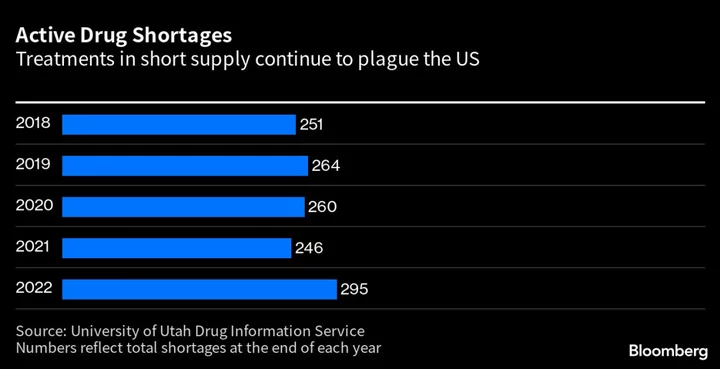Among the four biggest global accounting firms, Ernst & Young is likely to be the most exposed to Beijing’s crackdown on US-linked auditors, as it stands to lose about a 10th of its China revenue.
The Asian country recently urged state-owned enterprises to phase out Big Four contracts and hire locally instead in a bid to rein in foreign accountants amid what it called data security concerns. For now, the guidance applies to only central SOEs, and it’s unclear whether province-level SOEs and private companies will be included later.
In 2021, the Big Four audited a quarter of China’s 98 central SOEs, but EY led the pack earning about 12% of its revenue in the country from these giant corporations. KPMG, PwC and Deloitte got less than 4% each, according to data from the Chinese Institute of Certified Public Accountants analyzed by Bloomberg.
The bigger the pie, the harder the impact, said Howard Shatz, a senior economist at RAND Corporation, adding the loss of central SOEs may have a cascading effect.
“If you lose the Chinese state enterprises, you lose companies that are operating around the world,” Shatz said. “These are highly complex companies — so the audit fees for them are pretty hefty.”
Representatives for EY and Deloitte declined to comment, while PwC and KPMG didn’t respond to requests for comment.
It isn’t just the Big Four that are facing headwinds in China. Beijing has launched a nationwide anti-espionage crackdown on consulting firms, state media have reported, as part of efforts to tighten foreign access to sensitive information.
Barring the Big Four could also hurt Chinese businesses as an audit by a global firm lends credibility to their books on an international stage. An absence of that endorsement risks turning foreign investors wary.
China contributed 5.49 billion yuan ($793 million) to EY’s revenue in 2021, or 2% of its total, of which 661 million yuan came from 11 central SOEs. Additionally, it got 1.3 billion yuan from 280 Hong Kong-listed firms.
The Big Four earned a combined revenue of 20.6 billion yuan from all Chinese clients in 2021, according to the finance ministry. Though it represents just 2% of their total, the value of the Chinese market — and the Asia Pacific region more broadly — lies in its potential as growth outpaces most major economies.
Rising geopolitical tensions between the US and China spell further trouble for EY just as it’s dealing with the fallout from a failed attempt to split its audit and consulting arms. They also add to the uncertainty facing the professional services sector more broadly amid a slump and mass layoffs.








